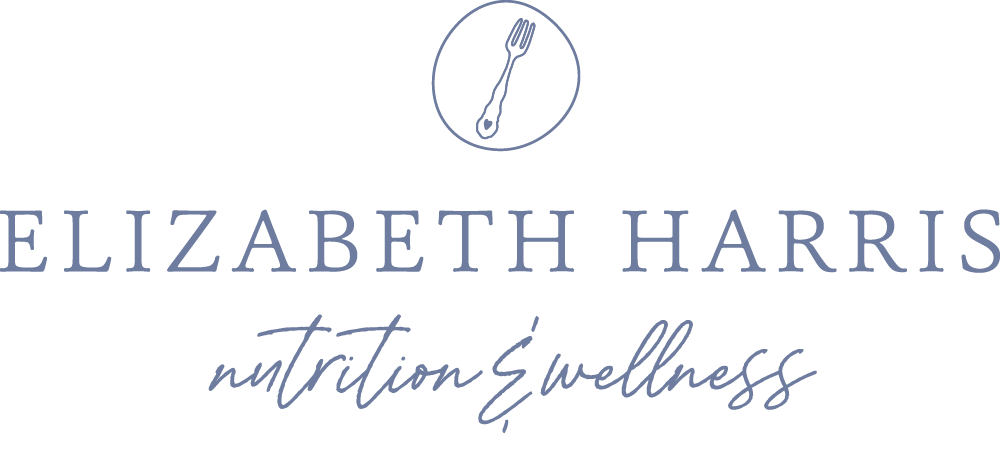4 Steps to Help You Banish Food Guilt For Good
Given the toxic diet culture we all live in, it’s incredibly common for us to experience food guilt and to feel guilty after eating.
And no wonder! We’re bombarded with messages every single day that moralize our food and eating decisions. Our culture talks about food in black and white terms such as good versus bad, healthy versus unhealthy, and even “clean” versus “junk” food. By extension, we can start to think of ourselves as good or bad based upon what or how much we’re eating. If that sounds strange, just think about how many times you’ve heard someone say something along the lines of, “I was so good today because I only had a salad at lunch” or “I cheated and had a donut for breakfast!”
Diet Culture Promotes the Idea That There’s a “Right” and a “Wrong” Way to Eat.
We’re presented with endless dieting plans and eating programs that tout counting calories, logging our food choices, or following strict and rigid ways of eating. Practically everywhere we turn, we’re told which foods we should or shouldn’t eat for weight loss or for health. This hyper fixation on body shape and size and the so-called perfect way of eating puts tremendous pressure on our eating decisions and body image.
Unfortunately, that pressure can harm our relationship with food and trigger tremendous food guilt when we eat things we think we shouldn’t, when we break the stated “rules” of a diet or healthy eating program, or when we eat more food than we think we should.
Feeling guilty about what we eat is a form of stress that can increase cortisol and other stress hormones in your body. In short bursts, these hormones serve an important purpose. However, if you’re chronically stressed for any reason—including frequently feeling guilty about what or how you eat—these hormones remain elevated, and it can negatively impact every organ system in your body.
This is just one of the reasons why your relationship with food is so important. It’s PART of healthy eating, health, and well-being. How you eat is just as important as what you eat.
I love to remind my clients that guilt is not a food group.
The truth is, unless you’ve got a life-threatening food allergy or a very specific medical condition, ALL foods can fit in a health-promoting diet. And yes, this includes the ones that diet culture loves to demonize, including carbs, sweets, fruit, pizza, dairy, and all the others.
Four Steps to Help You Banish Food Guilt and Stop Feeling Guilty After Eating
Step 1: Name it to tame it.
Notice the underlying thoughts that are making you feel guilty or regretful over your food choices. Odds are they sound something like this:
I “should” or “shouldn’t” eat XYZ food.
XYZ food is bad, junk, or unhealthy.
If I eat X, I’ll gain X pounds.
X food has too many calories, too much sugar, too many carbs, etc.
OMG. Now that I ate that, I need to double time at the gym.
We call those voices in your head that over-monitor your food decisions and shout eating “rules” at you all day long the food police. They’re an unfortunate byproduct of the toxic diet culture we all live in.
Try labeling these thoughts with a simple statement such as “that’s the food police talking” or “who invited the food police to this meal?”
Step 2: Ask and answer these three questions.
Try asking yourself these three simple questions to challenge the thoughts that trigger eating guilt.
Is this thought true? Is it helpful? Is it kind?
For example, is it true that every time someone eats cookies, they gain weight? Is it true that eating pizza will automatically make a person unhealthy? Is it kind to tell yourself you need to earn or burn off your food through exercise when in fact we all need food to fuel our bodies?
Is it helpful to think about calories or does it set you up to fail and disconnect you from your hunger and fullness cues?
Asking and answering these questions can help you recognize unhelpful diet-driven thought patterns and challenge cognitive distortions so you can move towards a more healthful perspective on food and nutrition.
Step 3: Challenge the food police at the root of eating guilt.
Push back on the food police by reminding yourself that ALL foods can fit in a health-promoting diet.
I like the phrase “food = food” as a way of neutralizing eating decisions. This doesn’t mean that all foods have the same nutritional value. We all know they don’t.
It simply means that food has no inherent moral value. It’s not good or bad; it just is. Likewise, WE aren’t good or bad people for choosing or not choosing certain foods either.
Remind yourself that no one food has the power to make us gain or lose weight or make or break our health. As Evelyn Tribole, one of the founders of Intuitive Eating likes to say, “If you didn’t steal it or kill the chef, there’s no reason to feel guilty for eating.”
Step 4: Satisfy your appetite and savor your foods.
Allow yourself to choose foods you genuinely want to eat, and practice being intentional about where and how you enjoy them.
I suggest you make eating those foods that typically make you feel guilty “an event,” at least in the beginning. Sit in a chair at a table and serve yourself some pretty dishes. Do your best to tune into your food, the flavors, the smells, your surroundings, and your body.
Commit to enjoying the heck out of your food while paying attention to how you want to feel in your body.
Want to learn more about healing your relationship with food through Intuitive Eating? Click here to read more about beginning an Intuitive Eating journey!
